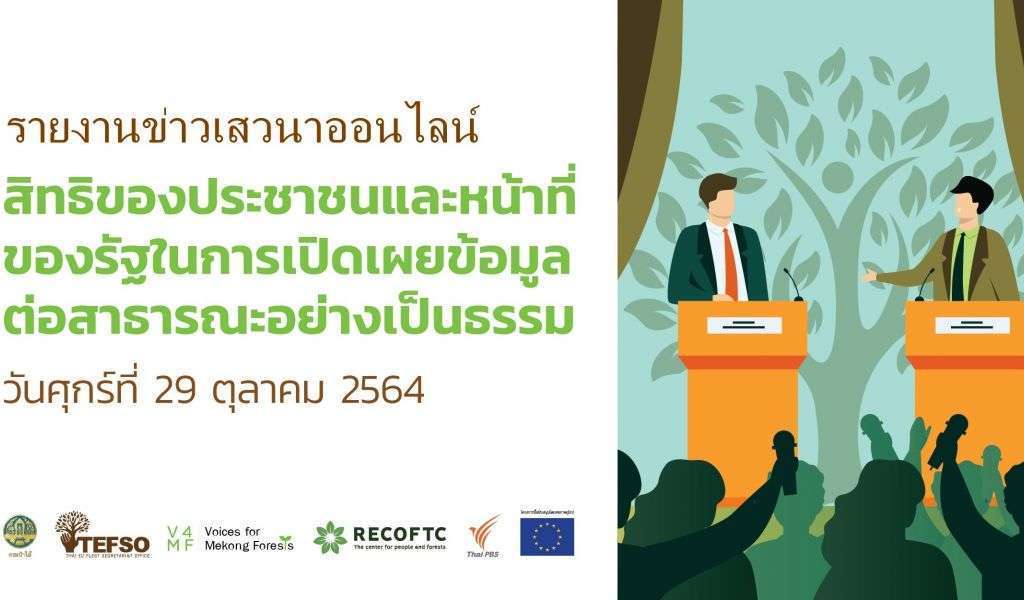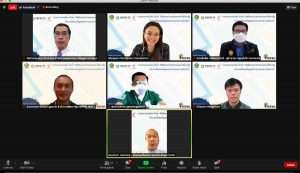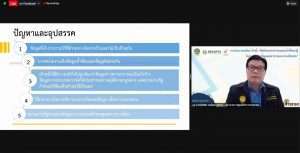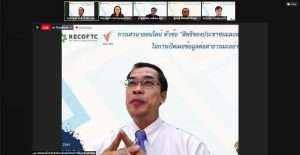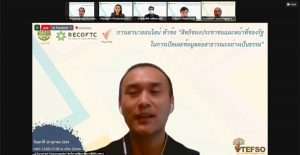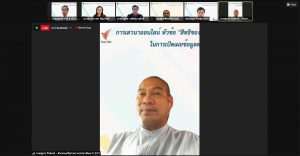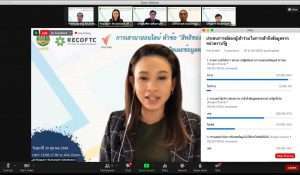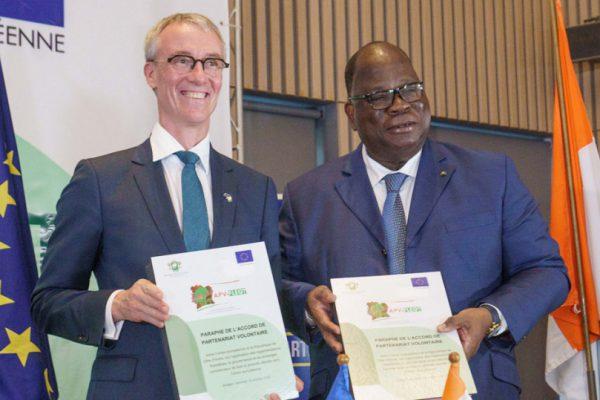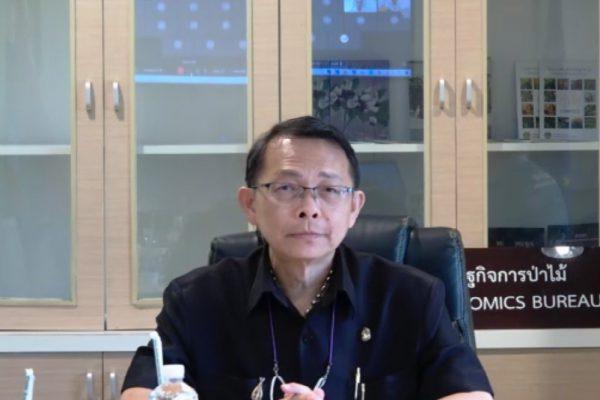Public disclosure of information is essential for good governance, transparency, and participation in the forest sector.
By joining the FLEGT VPA process, Thailand commits to strengthening governance in the forest sector through building a robust multi-stakeholder process and ensuring that useful information is available to the public to be used by operators in their businesses, civil society organizations in the monitoring forest management, as well as the interested public.
On 29 December 2021, the Royal Forest Department (RFD) and RECOFTC – The Center for People and Forests, Thailand held a public seminar on “Rights of citizen and government’s role in the public disclosure of information” to open a discussion floor for government, private sector and civil society to share views, current challenges, and conclude recommendations towards a just and proactive system. The panel discussion was led by
- Bandith Wongsenanurak, Director of RFD Service Center
- Wattanapong Kamdee, Office of the Official Information Commission
- Surachet Sasipongpairoj, Senior Analyst, Digital Government Development Agency
- Soonthorn Rakrong, CSO Network for FLEGT
- Moderated by Wipaporn Wattanawit, Broadcaster, Thai PBS
Government’s view on the proactive public disclosure of information
Bandith Wongsenanurak, Director of RFD Service Center, assured participants of the government’s commitment to public information. Digital platforms are prioritized; information is distributed on the department’s website and social media. Although most information is publicly available, certain information deemed sensitive will be disclosed upon approval; this is per Thailand’s Official Information Act. There is also information prohibited for disclosure, primarily involving information about an ongoing legal proceeding, private information of companies and individuals.
Admittedly, the organization faces challenges that affect the quality of the public information service from lack of budget and staff capacity, outdated information, and incongruency of information between organizations.
Diverging interpretation of the Official Information Act
Wattanapong Kamdee, Office of the Official Information Commission, believed that one of the existing challenges lay in the diverging interpretation of the Official Information Act between the government and people. While the key point of the Official Information Act is to push for a proactive disclosure of information, it is still unclear which information could be disclosed and which could not. The ambiguity led many governmental departments to strictly follow whatever was written on the regulation without assessing other factors in fear of violating the Official Information Act. Contrastingly, the citizens see that most information is allowed for disclosure which may or may not be the case. This is a pressing issue, and the Office of the Official Information Commission is in the process of clarifying the Official Information Act. Hopefully, the amended act will clarify which information is forbidden for disclosure to give all parties a clear idea.
Digital tools will promote a proactive and fair public disclosure of information
Surachet Sasipongpairoj, Senior Analyst, Digital Government Development Agency (DGA), an organization responsible for supporting the digitalization of the government, informed about the central government portal, www.data.go.th, which aims to be the central platform where all agencies upload and distribute their information. But there are challenges obstructing the data consolidation goal, such as regulatory limitation, the incompatibility of the current papered document, and limited digital capacity of government staff.
Views from citizens
Soonthorn Rakrong, CSO Network for FLEGT, saw that the problem lies in the quality of information distributed. While there are various channels in place, the information disseminated is not useful. Important information such as logging regulation and land rights is hard to access and unclear. Inability to access this information hinders smallholders from fully participating in the legal and sustainable timber market. It also prevents Thailand from increasing forest area, reducing poverty, and achieving sustainable development.
Conclusions and ways forward
The seminar concluded four work areas towards proactive public disclosure of information in line with the goals of the Official Information Act
- Government should release official guidelines on public disclosure of information for implementation by authority
- Government agencies should implement a system ready for a complete digital transformation
- Government agencies should focus on proactive disclosure of information
- Citizens should form groups to create negotiating power with the government
Recommendations and opinions collated from this meeting will be reflected on Annex 9 Public Disclosure of Information of the Thailand-EU Voluntary Partnership Agreement and form Thailand’s policy recommendation.

